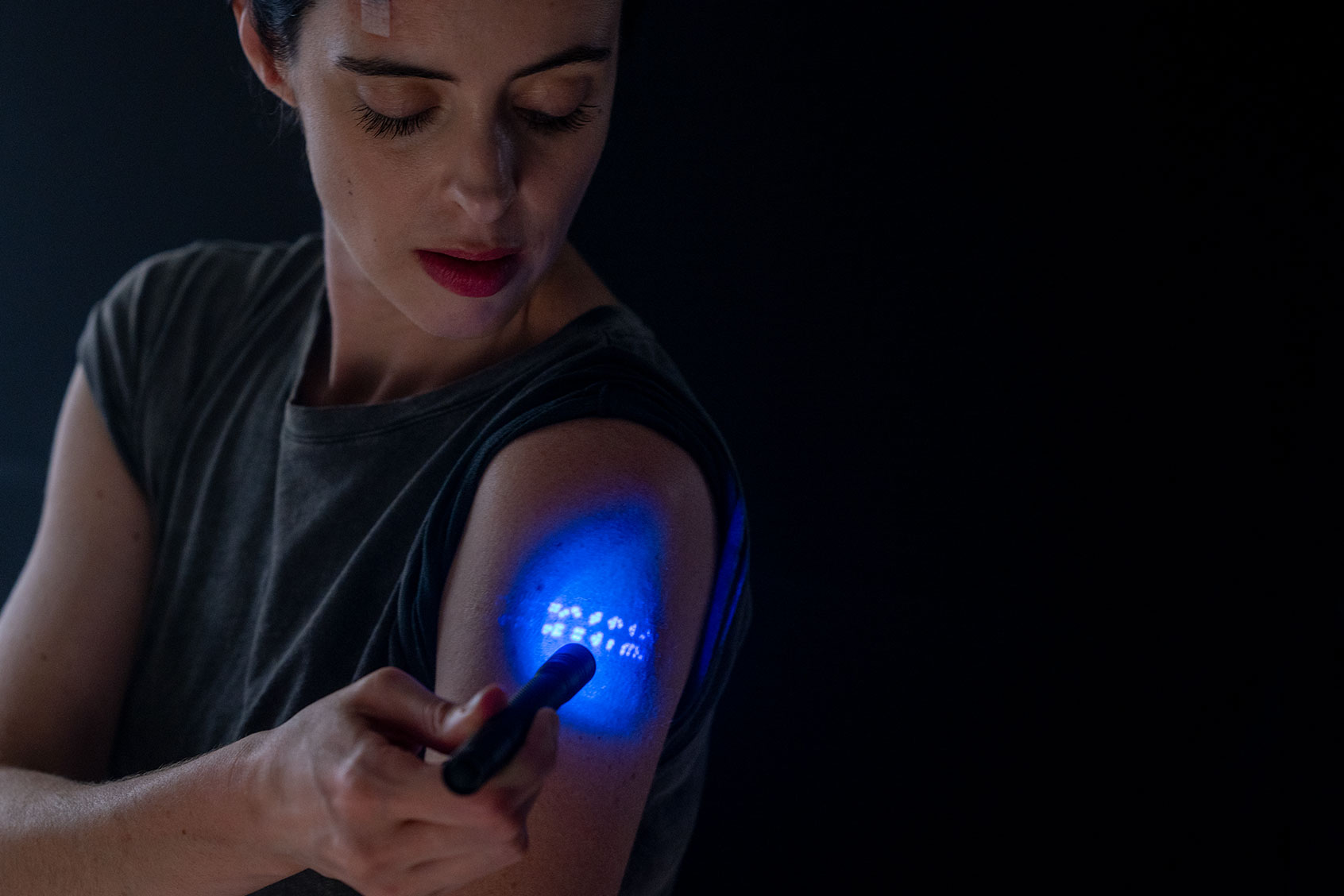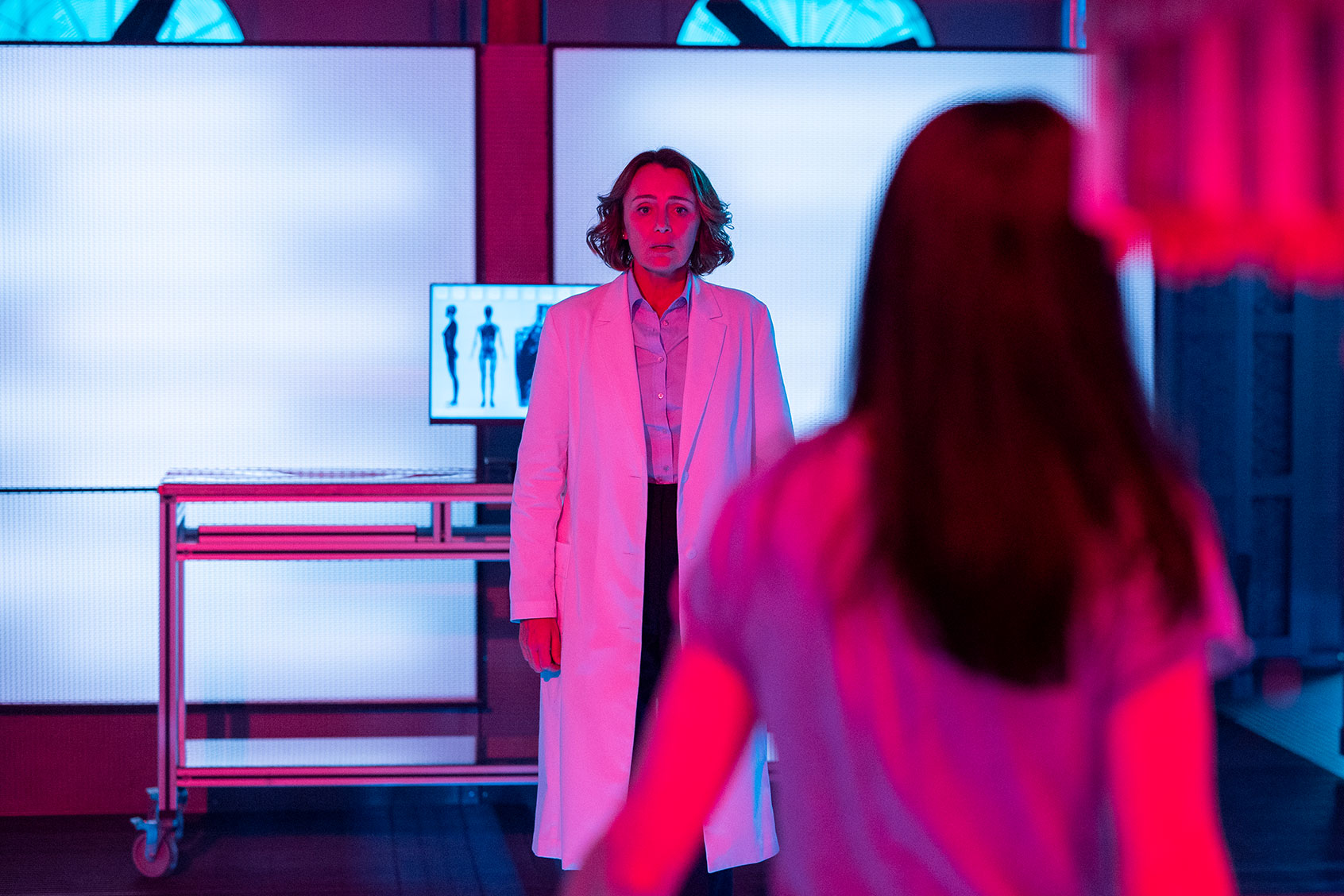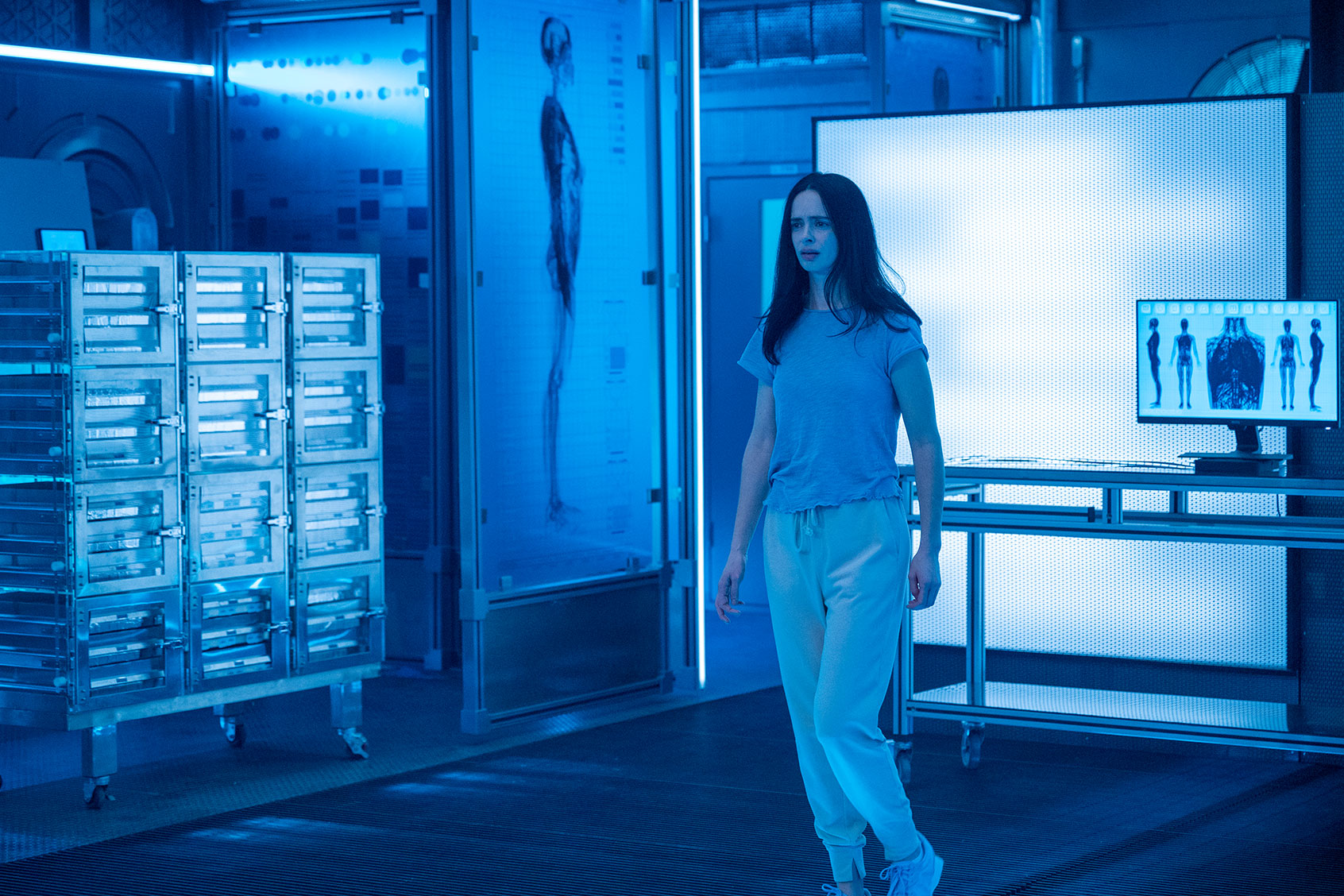“Orphan Black” began with one of the TV's most memorable opening scenes: Small-time grifter Sarah Manning (Tatiana Maslany) is waiting on a train platform when she notices another woman farther away who looks identical to her. Before she can process this shock the other woman steps in front of an oncoming train.
From there our heroine dives into a thrilling saga that leads her to discover she is one of many clones. Over its five seasons, the audience gets to know five of them, all played by Maslany, frequently in the same scenes.
Although “Orphan Black: Echoes” picks up the plot in 2050, series creator and showrunner Anna Fishko was determined to differentiate her continuation from the original in a few fundamental ways.
Firstly, Krysten Ritter’s Lucy is one of a kind, if not necessarily singular. But the mystery she awakens to is no less intriguing than Sarah’s. Lucy has no memory of who she is, only assurances from a kind doctor (Keeley Hawes) that everything is OK. This is a lie, naturally, and soon enough Lucy breaks out from what looks like an apartment to realize she’s been kept in an industrial facility.
Before she finds her way out, she comes across a machine . . . and is told that’s where she came from. In the original “Orphan Black,” the clones were carried to term by human surrogates. In Fishko’s speculative figure, one that is only a quarter of a century away, our biological copies can be printed.
“I really just liked this idea of replacement,” Fishko told Salon in a recent Zoom interview,” so really like, ‘Could I replace somebody? Was a one-for-one exchange possible, and in the sense that it would allow me to avoid actual emotional loss?’”
This idea hooks to modern concerns too, specifically conversations related to the possibilities and perils posed by artificial intelligence. With “Echoes,” Fishko wants us to ponder the qualities that not only make us human, but unique and irreplicable.
“I think that how science is slowly and consistently changing our lives and invading our space, is making us think about what makes us human and what's real and what's not real, and what's important to us as a society.”
 Orphan Black: Echoes (AMC)
Orphan Black: Echoes (AMC)
AI asks a lot of those same questions, she points out, citing the conversations related to AI-generated art. That programming can create technically perfect images, but there’s still something missing. “The idea behind a human making something, there's an intention to express something very meaningful and personal,” Fishko said. “AI kind of lacks that intention to express meaning.”
“What makes us who we are? Is it our relationships with other people? Is it our physical bodies?"
Intention and meaning are the core of Lucy’s adventures – we think. Initially, she just wants to be left alone to find her way in the world. But there’s always a shadowy, all-powerful entity behind it all. And Lucy, being a product of technological innovation, is viewed by her maker as property.
Many recognize Ritter as “Jessica Jones,” a Marvel superhero who survived the trauma of being controlled by a malevolent puppeteer. Lucy’s story bears some similarities to Jessica’s but, as Ritter observes in a separate video interview, “She has no backstory, unlike Jessica Jones who is so informed by such a deep well, and such a rich, tragic history. [It] informed everything she did, and informed every step she takes, everything comes out of her mouth.”
She added, “This was an interesting acting challenge, to play somebody who wakes up with no memory and doesn't feel the way she's supposed to feel, doesn't have the memories that she's expected to have, and is completely alone in the world.”
We need your help to stay independent
About that. Don't look for Ritter to play multiple versions of herself any time soon – which, again, is part of Fishko’s determination to stand apart from Graeme Manson and John Fawcett’s creation.
Production practicality informs part of that decision. All those scenes featuring Maslany playing against herself took a long time to shoot, requiring time to block stand-ins and then time to change costumes and reshoot from the other side.
“AI kind of lacks that intention to express meaning."
Another may be thematic, though. In 2013 “Orphan Black explored matters of biological and reproductive agency. Certainly that’s more relevant now than before, what with the death of Roe v. Wade and state-level bans on long-practiced fertility procedures including in vitro fertilization.
With “Echoes,” Fishko invites us to take a broader view of personhood and questions concerning what it means to be human. Since surrogacy was part of the cloning process in the first series, there’s less of a question of whether the clones are human beings. Introducing a mechanical element, Fishko said, raises different questions even though the process is entirely organic, or “as much as we could imagine it to be.”
This leads to various hypotheticals to chew on, she says. “Are they not people? Are they? They've been kind of created in this unusual way that we're not used to, and how do we feel about that?” she asks.
Want a daily wrap-up of all the news and commentary Salon has to offer? Subscribe to our morning newsletter, Crash Course.
Fishko adds that her two children were conceived using IVF, which is not the way that lots of people have babies. “But there are a lot of different ways in which technology aids in reproducing the species,” she said. “It doesn't seem like this particular one is happening anytime super soon. But it's not that inconceivable in a lot of ways.”
Additionally, there’s the consideration of how such mechanics would affect the people produced, and how other humans would view them.
 Orphan Black: Echoes (AMC)
Orphan Black: Echoes (AMC)
“Lucy even has a line like, ‘I didn't ask for this, I did not ask to be put in the world this way,’” Ritter said. “I think it's pretty f**ked up to be a person just printed from some goo — no history, nothing, no connection to anybody. And I think that's part of Lucy's whole drive is figuring out how to make sense of that.”
Through her, we might also consider questions about how we relate to each other, Fishko offers. “What makes us who we are? Is it our relationships with other people? Is it our physical bodies? Is it our memories?” she ponders. “What is that sort of magic combination of things that that gives us our sense of self and our identity?”
That may be the most important question to wrestle with in a time defined by sharp and dangerous partisan rifts, where much of society interprets people they deem to be separate and perhaps lesser based on external forces.
When I made that observation to Fishko, she replied, “I think you're right. I think politically, obviously, people tend to find their identity more and more is related to larger groups and political associations.
“But I think that sometimes when the robots get scary,” she added, “it’s helpful to remind [ourselves] to ask the important questions about what we all do have in common as humans.”
"Orphan Black: Echoes" premieres at 10 p.m. Sunday, June 23 on AMC, AMC+ and BBC America.
Read more
about this topic


